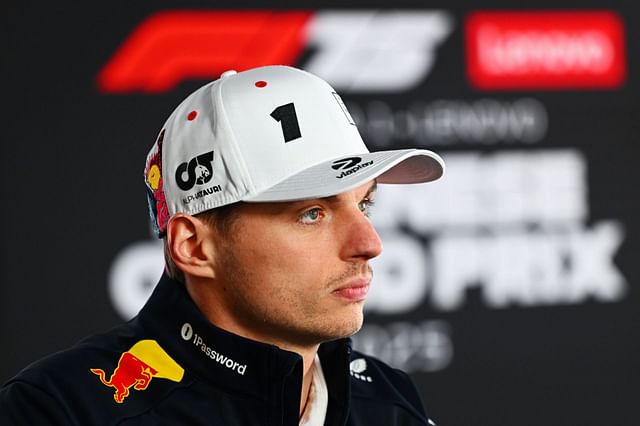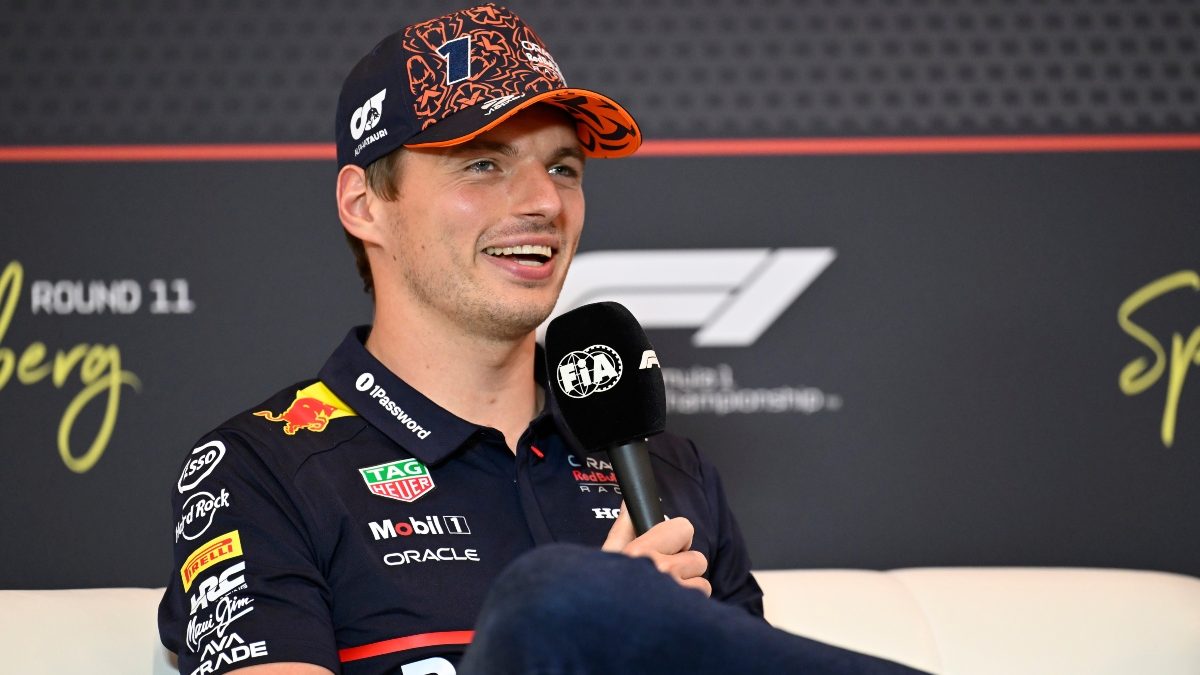The Formula 1 paddock is abuzz with speculation as fresh reports suggest Max Verstappen, the reigning four-time world champion, could be preparing for a sensational exit from Red Bull Racing. With whispers of a potential mega-deal with Mercedes for the 2026 season and ongoing uncertainty about Red Bull’s competitiveness, the Dutch driver’s future has become the hottest topic in global motorsport—and a trending subject in India’s thriving F1 community.

1. Mercedes in Pursuit: Verstappen Open to Blockbuster Switch
The latest developments indicate that Mercedes, led by team principal Toto Wolff, is ramping up efforts to sign Verstappen for 2026. While Verstappen inked a lucrative contract extension with Red Bull until 2028, sources reveal that talks between the Dutchman’s camp and Mercedes have “intensified” in recent weeks. The Silver Arrows are reportedly exploring a deal that could see Verstappen replace George Russell, whose contract is on hold pending the outcome of these negotiations.
Verstappen’s willingness to consider a move comes amid a rare dip in Red Bull’s dominance, with McLaren and Mercedes closing the performance gap and Verstappen currently sitting third in the 2025 drivers’ standings. Notably, his contract contains a performance-related exit clause: if he is not in the top four at the summer break, he is free to leave Red Bull after this season. With only three races left before the break and Verstappen just nine points ahead of Russell, the stakes have never been higher.
2. Contract Clauses and the Red Bull Conundrum
Red Bull’s management, led by Christian Horner, remains adamant that Verstappen is “a big part of our team” and has repeatedly dismissed the swirling rumors as “noise.” Horner has emphasized the strength of the relationship between Verstappen and the team, highlighting the Dutchman’s decade-long journey with Red Bull and his stated desire to finish his career with the team. However, Horner has also acknowledged the need to “mentally prepare” for a future without Verstappen, admitting that in F1, “nothing stands still.”
The financial implications of a Verstappen exit are staggering. Reports suggest that any team hoping to buy out his contract before 2028 would need to pay in excess of £100 million, making it one of the most expensive transfers in F1 history. Despite the cost, Mercedes appears undeterred, especially with new technical regulations set to shake up the grid in 2026.

3. Red Bull’s Internal Challenges and Verstappen’s Discontent
Verstappen’s potential departure is not solely about on-track performance. The Red Bull camp has been rocked by off-track controversies, including a well-publicized feud between Verstappen’s father, Jos, and team principal Christian Horner. These tensions, combined with the team’s recent struggles to match McLaren’s pace, have fueled speculation that Verstappen may be seeking a fresh start elsewhere.
Insiders note that Verstappen has grown increasingly frustrated by Red Bull’s inability to provide a consistently competitive car in 2025. After winning four consecutive titles, the prospect of missing out on a record-equalling fifth has reportedly weighed heavily on the Dutchman, prompting him to keep his options open.
The uncertainty around Max Verstappen’s future with Red Bull has cast a shadow over the team’s current campaign, with every paddock conversation inevitably circling back to the Dutchman’s next move. Team members and engineers are reportedly feeling the pressure, knowing that Verstappen’s decision could dramatically alter the team’s trajectory for years to come. Sponsors and commercial partners are also closely monitoring the situation, as Verstappen’s star power is a major draw for Red Bull’s global brand. The possibility of losing such a high-profile figure has prompted internal discussions about contingency plans, including potential changes to the team’s technical and management staff to retain competitiveness and appeal.
Meanwhile, Mercedes is carefully orchestrating its approach, balancing the need for discretion with the urgency of securing a driver of Verstappen’s caliber. Toto Wolff’s strategy has been to remain publicly respectful of Red Bull’s position while quietly building a compelling case for Verstappen to join. Insiders suggest that Mercedes is offering not just a lucrative contract but also significant input into the team’s technical direction, a factor that could appeal to Verstappen’s desire for influence and legacy in the sport. The team’s confidence in its 2026 car package is a major selling point, with engineers reportedly already tailoring design considerations to suit Verstappen’s aggressive driving style.
For Verstappen himself, the coming weeks represent a period of intense reflection and negotiation. Sources close to the driver say he is weighing not only financial and competitive factors but also personal ambitions and lifestyle preferences. Verstappen has spoken in the past about his desire for new challenges and his interest in racing outside of Formula 1, making his long-term commitment to any team far from guaranteed. The support and advice of his father, Jos Verstappen, remain influential, especially given the family’s sometimes tumultuous relationship with Red Bull management.
4. Mercedes’ Strategy and the 2026 F1 Revolution
Mercedes’ pursuit of Verstappen is part of a broader strategy to reclaim the top spot in F1 as the sport prepares for its biggest regulatory overhaul in decades. The 2026 season will introduce sweeping changes to chassis and power unit rules, and Mercedes is confident they can build the car to beat. The team’s board, however, is reportedly divided on whether Verstappen’s signing is essential, given their belief in the strength of their upcoming package.
For Verstappen, the timing could be ideal. By joining Mercedes just as the new regulations take effect, he could position himself at the forefront of a new era—potentially adding to his legacy as one of the sport’s all-time greats.
5. The Market Domino Effect: Russell, Piastri, and the Next Generation
The uncertainty surrounding Verstappen’s future has created a domino effect in the driver market. George Russell, currently Mercedes’ lead driver, has not been offered a contract extension as the team waits to see if Verstappen will make the switch. Meanwhile, Red Bull is quietly preparing for all scenarios, with Horner jokingly mentioning McLaren’s Oscar Piastri as a hypothetical “Plan B” should Verstappen depart.
Red Bull’s focus on developing young talent remains strong, with rising stars like Arvid Lindblad getting opportunities to test in practice sessions. The team insists it has “strength and depth” to weather any potential loss, but the reality is that replacing a driver of Verstappen’s caliber would be a seismic challenge.
6. Verstappen’s Own Words: Ambition, Uncertainty, and the Road Ahead
Despite the intense speculation, Verstappen has remained characteristically coy about his future. When pressed by journalists about talks with Mercedes and the status of his contract, the Dutchman declined to give definitive answers, stating, “I don’t talk about my contract. That makes it a bit easier for everyone.” He has consistently said he does not want to race in F1 into his late 30s, with ambitions to explore other motorsport categories, including the Le Mans 24 Hours.
Verstappen’s current position in the championship—third, with 155 points—means the next three races will be pivotal. If he slips outside the top four before the summer break, his exit clause could be triggered, opening the door for a blockbuster move.)
)
7. F1’s High-Stakes Power Play: What’s Next for Verstappen, Red Bull, and Mercedes?
As the British Grand Prix weekend unfolds, the eyes of the motorsport world are fixed on Verstappen, Red Bull, and Mercedes. The outcome of this high-stakes saga will shape the future of Formula 1, with potential ripple effects across the grid. For Indian fans, who have embraced Verstappen’s aggressive style and Red Bull’s underdog-to-dynasty story, the drama adds a new layer of intrigue to an already thrilling season.
Whether Verstappen stays loyal to Red Bull or embarks on a new chapter with Mercedes, his decision will redefine the sport’s competitive landscape. Teams, sponsors, and fans alike are bracing for what could be the most significant driver transfer in recent F1 history.
The broader Formula 1 community is watching with bated breath, aware that Verstappen’s decision could trigger a cascade of moves across the grid. Teams like McLaren, Ferrari, and Aston Martin are also rumored to be monitoring the situation, ready to make aggressive offers should Verstappen become available. The driver market has rarely been this volatile, and the prospect of a major shake-up is fueling speculation and excitement among fans and analysts alike. The anticipation is heightened by the looming 2026 regulation changes, which many believe will reset the competitive order and provide new opportunities for ambitious teams and drivers.
Media coverage in India and around the world has amplified the drama, with every comment, gesture, and rumor dissected for clues about Verstappen’s intentions. Indian F1 fans, who have embraced Verstappen’s fearless style and celebrated his rise to the top, are especially invested in the outcome. Social media platforms are abuzz with theories and polls, and the story has dominated motorsport headlines for weeks. The possibility of seeing Verstappen in a Mercedes, or even another team, has sparked debates about how the balance of power in F1 could shift in the coming seasons.
As the summer break approaches, the pressure on all parties is reaching a boiling point. Red Bull’s performance in the next few races will be critical, not only for their championship hopes but also for their ability to convince Verstappen to stay. Mercedes, on the other hand, is prepared to move swiftly if the exit clause is triggered, with a comprehensive package ready to present. The stakes could not be higher, and the decisions made in the coming weeks will shape the future of Formula 1 for years to come.
Follow: Mercedes

